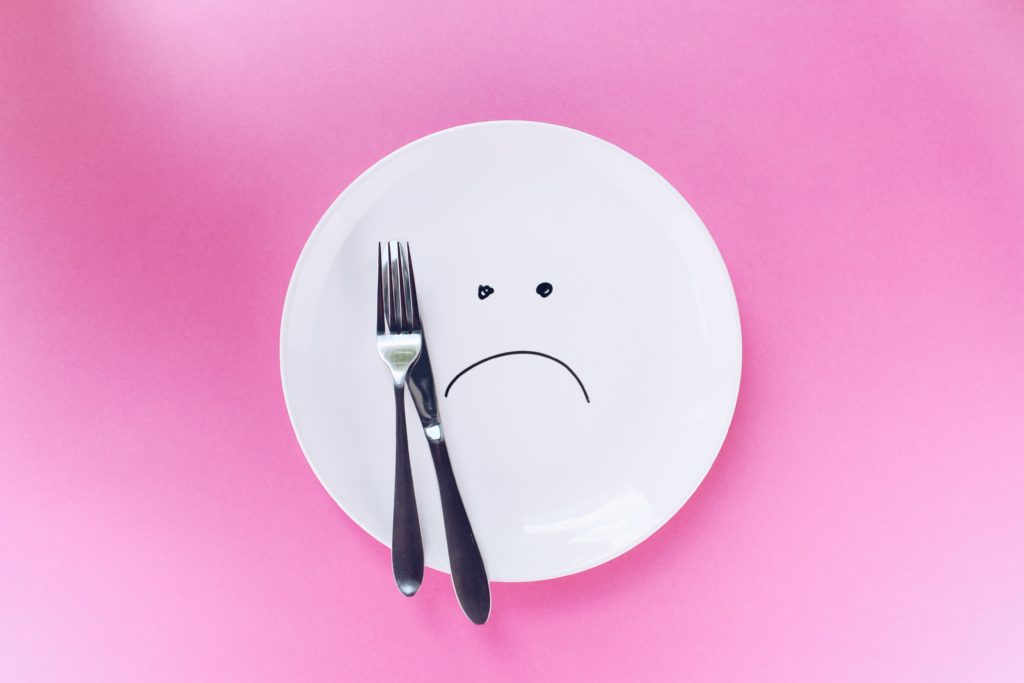Want to Lose Weight? Diets Don’t Work – Best 10 Proven Habits to Do Instead
If one of your goals or resolutions is that you want to lose weight just know that diets don’t work. Here are science-based proven habits and tips that you should follow to reach your goals instead of dieting.

While everybody is different, there are reasons why diets tend to do more harm than good. Keep reading to find out the issues with dieting, why they fail, and what actually to do if you want to lose weight.
The Issue With Dieting
So, what’s the issue with dieting in the first place? Isn’t it just eating vegetables and losing a couple of pounds in a couple of months? The issue is that people tend to go on insanely restrictive crash diets. These diets tend to limit certain food groups such as cutting out carbohydrates or cutting out all fat. This mentality is not healthy and not sustainable. Another issue with diets is that they tend to include intense workouts. At the end of the day, while this may burn a couple of calories, it’s not sustainable and can end up doing more harm than good. Diets fail because health, fitness, and losing weight aren’t just about reducing calories and increasing workouts.
Why Diets Fail
Bodies and metabolism are complex, and diets fail to understand the underlying mechanisms related to human biology. Our bodies want to store energy. This is a defense mechanism left over from when our ancestors had to store fat to survive months when food was less available. Dieting fails to teach us sustainable habits that lead to natural weight loss or weight management.
Just look at the show The Biggest Loser. Participants are encouraged to cut food, increase workouts, and even skip drinking water to show more extreme weight loss and research has found that 90% of participants gain that weight back. Extreme calorie reduction and extreme workouts are not good for our metabolism.
Want to Lose Weight? Diets Don’t Work
If you want to lose weight, diets don’t work. Diets focus on restricting calories, increasing workouts, and failing to understand why our body does this in the first place. What you have to do is find sustainable, proven scientific habits and tips that lead to metabolic changes in the body.
10 Science-based Habits and Tips
Let’s get right into it! If you want to lose weight here are science-based habits and tips that can help you get there. These habits work with the body to regulate your weight instead of forcing the body to lose its stored energy due to extreme conditions.
1. Choose Lower Glycemic Index Foods
An important thing to know is that when we eat, insulin is released in order to remove the energy from our blood and place it in areas of the body. In some cases, this sugar or energy is stored as fat. When food has a lower glycemic index, this means that less of a spike in blood sugar is created. A lower spike means less insulin is released into the blood.
Foods that do not spike your glycemic index include complex carbohydrates such as those found in whole wheat bread, healthy fats such as the omega-3 found in avocados, and good sources of protein such as those found in eggs, chicken, and seafood.
2. Reduced Ultra-processed foods
Ultra-processed foods affect us in a couple of ways. These foods, which are those found in prepackaged meals, cans, and boxes, tend to have a lot of preservatives and additives that influence our gut microbiome. Our gut microbiome influences everything from the way we build muscle to our mood, metabolism, and sleep.
Reducing ultra-processed foods has been found to increase gut microbiome health which leads to biological changes that can help support a healthy weight. Try to reach for whole foods when possible, fruits, vegetables, frozen items with no added ingredients, etc. Look for complex carbohydrates such as legumes with nothing added to them, and whole grains such as oatmeal, quinoa, and whole wheat bread.
3. Skip Intense Workouts, Try Short Routines
You would think that intense workouts mean you burn more calories which can help you lose weight. This may be true for a couple of days of you doing an intense workout, but the body doesn’t like drastic change. If you start doing intense workouts, the body will compensate by lowering the metabolism to save more energy when you aren’t working out. This is because the body is worried that you will have to keep doing intense workouts and wants you to have the energy to do them.
Instead, try moderate movements such as walking, or short workouts that are intense like high-intensity interval training. Don’t overdo intense workouts, especially if you are someone who is just starting on your fitness journey.
4. Eat Mindfully
Eating mindfully is good for our digestion and mental health. Instead of eating in front of a TV show or with a movie playing, try to have your meal times more mindful. This means sitting down with your food and truly savoring everybody, enjoying the look, textures, tastes, and sounds that come with your food.
Eating mindfully can help us not overeat since we are more focused on listening to our bodies. Sometimes, we reach for food when we are bored or sad. We tend to associate happiness with good-tasting things, which makes sense. Eating mindfully teaches us to honor what we feel in our body and make sure we are listening to what our body is telling us.
5. Have a Lighter, Earlier Dinner
Research has shown that bodies May process food differently at different times. A high-carb meal for dinner may cause us to sleep deeply but may reduce our quality of sleep. For dinner, try to have a lighter meal. It can be helpful for this meal to happen before 8 pm since later at night, the body is more focused on preparing us for sleep than it is on digesting our food properly.
6. Consistency with Meal Time
Another good habit to have if you want to manage your weight is to be more consistent with your meal times. This is because the body does this weird thing called insulin anticipation. For example, if you eat every day at around noon, your body starts to anticipate the meal before it comes. The body releases insulin to quickly and efficiently process the food that’s on its way.
The more consistent you are with your meal times the more your body can process and digest food effectively. Skipping meals, drastically changing meals, or altering times may cause your body to become unbalanced metabolically.
7. Skip Low Fat Products
Low-fat products are not good for you. Fat is not the enemy of weight loss. Fat is a good source of energy that helps us feel full for longer. When you eat low-fat products, you have to ask yourself what they are replacing the fat within that product. In many cases, this is filler ingredients such as sugar, starches, or thickeners.
Plus, there are centers in the stomach that make sure your meals are balanced. If you skip fat for a meal, your body might still send you hunger cues due to the absence of this important macronutrient. At the end of the day, that is also something that tends to be lower on the glycemic index, making it a good option especially if you are choosing foods high in healthy fats such as Omega-3.
8. Boost Muscle Mass
One of the best ways to burn calories without doing anything is to increase muscle mass. This is because muscle needs more energy to be maintained. Working out is great to burn a couple of calories but the majority of our calorie expenditure comes from when we are at rest. When we are sitting doing nothing, the body is burning calories. The more muscle you have, the more calories you burn at rest.
9. Practice 80/20 Lifestyle
An 80/20 lifestyle is all about balance. This means 80% of the time you are eating healthy while the other 20% of the time is spent treating yourself and enjoying life. There is no Health without balance. Overly restricting treats may cause you to binge when you have an opportunity to eat them next time.
When you allow yourself to enjoy them in your healthy lifestyle, you remove the anxiety and anticipation you feel about eating them. You are able to enjoy indulging in your favorite foods and desserts without binging. This helps you develop a better relationship with food, your body, and yourself.
10. And Eat Until 80% Full
Our brains tend to lag. This means we may be full physically, but our brains are still sending us hunger cues. One good habit is to eat until you’re about 70 to 80% full. This helps you not overeat because it teaches us not to overstuff ourselves. Eating until 80% full can help you digest food better and eat more mindfully too.
Bonus Habit: Add, Don’t Subtract
This is a good habit to keep with you for the rest of your life. This means adding to your food not subtracting. If you want to eat a cookie, eat a cookie. However, let’s add to that. To the snack, add some Greek yogurt for added protein and healthy fats, put some berries on top for an increase in vitamins and fiber, and maybe add some peanut butter or cacao nibs for a healthy dose of nutrients and fats. This took a simple cookie onto a whole new level in terms of nutrition and how satisfying it will be for your body.
Personal Take on Dieting
Every body is a bikini body at the end of the day, but if you want to lose weight, then that’s your choice. The issue with wanting to lose weight is that we tend to hyper-fixate on a number on the scale instead of learning healthy habits that lead to internal changes that improve overall health. It’s okay to want to look a certain way but basing fitness on aesthetics tends to lead to mental health issues, body dysmorphia, and eating disorders.
Instead, lifestyle changes should be made and the rest should follow. Life is too short to heavily restrict or to work out intensely when it just feels like punishment. Enjoy food and moderation, fuel your body with nutrients that contribute to your health, work out in a way you enjoy, and make fitness a personal journey for you.
The Takeaway
If you want to lose weight don’t diet. Diets do not work and tend to slow down metabolism. Adopting healthy habits is the best way to manage your weight and increase overall health. Try not to get too hung up on appearance as well. No matter what you look like, you deserve respect.
Remember that health comes from within. Eat nutritious food, exercise when you can, and take care of your mental health. The small daily habits you cultivate become the basis for overall wellness. Don’t forget about microbiota health too! Gut microbiota affects the entire body, from the skin to muscles, to immune and mental health! Get all the resources you need about microbiota health for free here!





